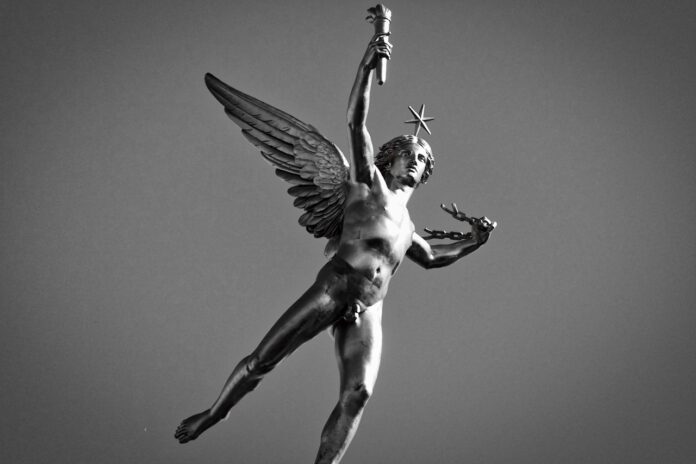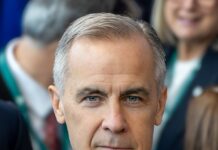By Prof. Dr. Dr. h.c. Carl Baudenbacher, former President of the EFTA Court (2003-2017), Visiting Professor at the London School of Economics, Baudenbacher Law AG
The Swiss Confederation faces a European policy balancing act that risks failing. That would repeat a story that has already played out once before, albeit under different circumstances.
On 2 May 1992, Switzerland, together with the six other EFTA states at the time—Finland, Iceland, Liechtenstein, Norway, Austria and Sweden—signed the Agreement on the European Economic Area (EEA). The multilateral treaty is based on the principle of dynamic adoption of EU internal-market law, but gives the EFTA states the right to operate their own independent supervisory body (ESA) and their own independent court (the EFTA Court), with their own decision-makers and staff. There is also a safeguard clause in the EEA Agreement.
However, this was not enough for the majority of the Swiss Government, the Federal Council. Its member Adolf Ogi, a former sports official, declared that the EEA was only conceivable as a “training camp” for later EU accession, and four of the seven Federal Councillors decided to apply for EU membership half a year before the EEA referendum. This sealed the fate of the EEA in Switzerland. On 6 December 1992, the proposal was rejected by a narrow majority of voters and by a clear majority of cantons.
First attempt at flight
In Greek mythology, the ingenious inventor, architect and sculptor Daedalus built the labyrinth for the Minotaur on Crete, where he was subsequently held captive. He fled with his son Icarus. The two escaped through the air with wings they had fashioned from wax and feathers. Icarus became overconfident, flew too close to the sun, the wax in his wings melted, and he crashed to his death.
Just as Icarus flew higher and higher, four of the seven Swiss Federal Councillors wanted to ascend toward the supposedly sun-like EU—and they caused a crash landing.
Second attempt at flight
Twenty years later, the second act began. The EU made Switzerland an even more generous offer than in 1992: the country in the heart of Europe would not have to adopt the entire body of EU internal-market law, but could participate in the market on a sectoral basis. To do so, it would have to “dock” with the ESA and the EFTA Court, which would have meant submitting to these two neutral institutions while simultaneously taking a seat on them.
The Icarus reflex immediately kicked in in Bern. The Federal Council rejected the EU’s offer on the basis of seven false claims made by the Foreign Ministry. The intention was—no longer directly, but nonetheless—to fly once again toward the supposed sun of EU membership.
EU opens door to Swiss participation in flagship programmes amid backlash in Bern https://t.co/Q6k6b3z4rk pic.twitter.com/LC98Br4MmC
— Euractiv (@Euractiv) October 22, 2025
Petty eurocrats were apparently angry at Switzerland four years ago, when no deal was found on an updated relationship (due to excessive EU demands like having its own top court serve as the arbiter).
"The EU representatives were furious with us," recalls a member of the Swiss…
— Pieter Cleppe (@pietercleppe) June 2, 2025
Today, a model is under discussion which, unlike in 1992, the EU has developed not for Western European partner states on an equal footing but for post-Soviet, developing and emerging countries and former colonies of European powers in North Africa.
It is based on the dynamic adoption of sectoral legislation, de facto supervision by the watchdog of the opposing party, the European Commission, and a monopoly of interpretation by the opposing party’s court, the CJEU. Pro forma, an “arbitration tribunal” is interposed. The most important difference to the countries mentioned in Eastern Europe and North Africa is that they depend on EU financial support, whereas Switzerland would also have to make CHF 350 million in cohesion payments annually.
"The day the Swiss government agreed a treaty it had not read" – New article by Prof. Dr. Dr. h.c. Carl Baudenbacher, the former longtime President of the EFTA Court: https://t.co/BymL4w4B5o #Switzerland #EuropeanCommission #Trade #Rahmenverträge
— BrusselsReport.EU (@brussels_report) December 30, 2024
The attempt to set a “point of no return” on the path to EU membership is, of course, under a much worse star than that of 1992, and this for several reasons:
(1) The model of supervision and dispute resolution would be significantly more disadvantageous for Switzerland than that of the EEA. This cannot be dismissed by emphasising the alleged independence of the “arbitration tribunal” and downplaying the role of the CJEU. These claims originate in interested—and therefore biased—Swiss circles and their affiliated armchair scholars. Independent foreign experts clearly see that the “arbitration tribunal” would merely serve to conceal a transfer of power to the EU.
(2) Unlike in 1992, the business community is by no means united behind the project; on the contrary, there is resistance from strong and intellectually well-positioned groups. The level of argumentation from the large associations, on the other hand, is relatively poor.
(3) The procedure followed by the once-again divided Federal Council does nothing to inspire confidence—quite the contrary. The requirement for transparency has been flouted since 2013, and the matter was waved through politically on 15 December 2023 and 20 December 2024, even though the Federal Councillors had not seen the final treaty texts. On 21 May 2025 the agreements were initialled in Bern, but they were kept secret until 13 June 2025. This unfair modus operandi allowed the Federal Government in Bern and its allies to promote the agreements for months and to fend off criticism by pointing out that the final texts were not yet known.
(4) The clumsy attempt by the Federal Council—or rather its majority—to improve the project’s chances by refusing to provide for a majority of cantons, based on an unconvincing “expert opinion” from the Federal Office of Justice, contradicts the most basic principles of legal methodology.
(5) In 2020 the United Kingdom left the EU. This has significantly weakened the Union. Former Czech Foreign Minister Karel Schwarzenberg, who was also a Swiss citizen, described Britain’s exit from the EU as a political disaster. Without the United Kingdom, Europe will be “a sad sight” because the EU will “lack English thinking,” specifically “the joy of contradiction.” “I mean, a Europe that, to put it bluntly, is dominated by French centralism but implemented with German thoroughness, fills me with horror.”
Another crash this time?
The chance that Icarus—flying once again toward the supposed sun of EU membership—will crash into the sea this time too is real (especially in times of climate change). If so, it may become necessary to do what the Federal Council, which has surrounded itself with yes-men, has so far failed to do: carry out an assessment in which no option is ruled out. The “secret empire” of Switzerland, with its strong economy, established structures and unique geographical location, should calmly face any penalties imposed by the EU (which in many cases would be self-defeating). And, if necessary, defend itself using the legal and communicative means at its disposal.
Good to be in Switzerland this week to talk about Britain and Brexit. The parallels between Starmer's so-called "reset" and the prospective Swiss deal with the EU are striking – and troubling.
Thank you to Nebelspalter magazine @nebelspalter for hosting this podcast. Full video… https://t.co/sSfxhsLtdJ
— David Frost (@DavidGHFrost) October 25, 2025
Disclaimer: www.BrusselsReport.eu will under no circumstance be held legally responsible or liable for the content of any article appearing on the website, as only the author of an article is legally responsible for that, also in accordance with the terms of use.













